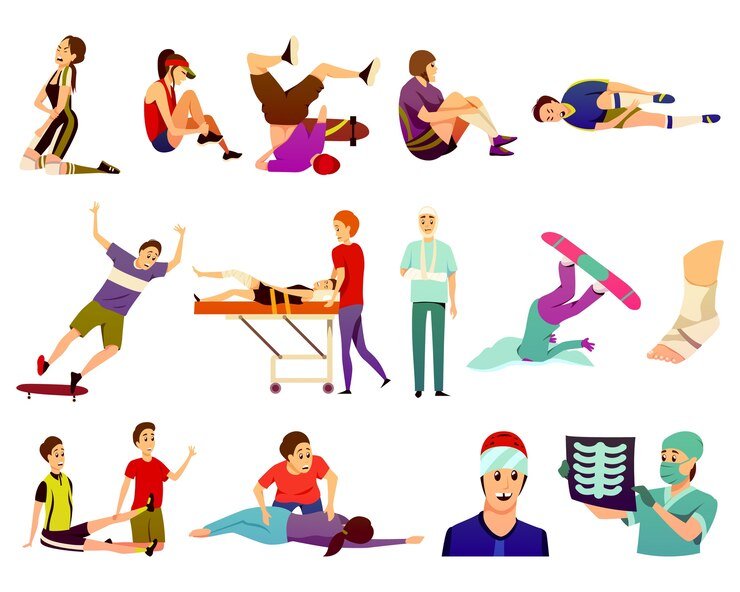Project Ideas with Industry Professionals
Advanced IT Projects
For Your Career!
Solve Complex Projects with Expert Guidance.
Find the exact semester projects according to your needs.

With the ever-changing technical aspects and shifts in the IT scapes, it is vital to keep ourselves on toes. Keeping this in mind, our latest projects dealt with leading technologies like AI, Python, IoT, PHP, Software Testing, etc.
Facial expression emotion recognition is an intuitive reflection of a person’s mental state, which contains rich emotional information, and is one of the most important forms of interpersonal communication. Facial expression emotion recognition does the task of classifying the expressions on facial images into various categories such as anger, fear, surprise, sadness, happiness and so on. It analyses facial expressions from both static images and videos in order to reveal information on one’s emotional state. FER analysis comprises three steps: a) face detection, b) facial expression detection, and c) expression classification to an emotional state. Emotion detection is based on the analysis of facial landmark positions (e.g. end of the nose, eyebrows). Furthermore, in videos, changes in those positions are also analysed, in order to identify contractions in a group of facial muscles.

Facial expression emotion recognition using OpenCV is a technology that classifies emotions (such as anger, happiness) based on facial features in images and videos. It involves three key steps: face detection, tracking facial landmarks, and identifying muscle contractions to determine emotions. This technology finds applications in human-computer interaction and sentiment analysis, demonstrating the powerful potential of OpenCV in understanding and interpreting human emotions, enriching the scope of human-machine interfaces and psychological research.

The rapid advancement in color printing technology has led to a surge in counterfeit currency production, undermining the authenticity of legal tender in India. To address this issue, we have developed a Python-based system that utilizes image processing techniques. This system evaluates various features of Indian currency notes to determine their authenticity. Through processes like grayscale conversion and edge detection, it provides a straightforward and high-performance solution for distinguishing real currency from counterfeits, thus aiding in the fight against fraudulent currency circulation.

The "Real-Time Face Mask Detection System" addresses the imperative need for enforcing face mask usage in indoor locations. Manual checks are impractical and risky. This innovative system employs real-time image recognition, distinguishing masked and unmasked faces with high accuracy. It operates in real time, conserving resources and ensuring immediate compliance. This technology reinforces safety measures in public spaces, enhancing overall public health. By providing swift, reliable feedback, it plays a crucial role in promoting and enforcing face mask regulations in indoor settings, safeguarding lives and operational efficiency.

The AI Virtual Mouse is an innovative leap in HCI technology, replacing traditional mice, batteries, and dongles. Utilizing computer vision and machine learning, it interprets hand gestures and tip movements through webcams or built-in cameras. This system enables users to execute computer functions like left-click, right-click, scrolling, and cursor control without physical input devices. Powered by deep learning for precise hand detection, it's not only cutting-edge but also addresses health concerns by reducing device dependency, minimizing physical touchpoints, and mitigating the spread of diseases such as COVID-19.

Customer churn analysis and prediction in the telecom sector is an issue nowadays because it’s very important for telecommunication industries to analyze behavior's of various customers to predict which customers are about to leave the subscription from telecom companies. So machine learning techniques and algorithms play an important role for companies in today’s commercial conditions because gaining a new customer’s cost is more than retaining the existing ones. This project focuses on various machine learning techniques for predicting customer churn through which we can build the classification models such as Logistic Regression, Random Forest and lazy learning and also compare the performance of these models.

Credit card fraud is a serious criminal offense. It costs individuals and financial institutions billions of dollars annually. According to the reports of the Federal Trade Commission (FTC), a consumer protection agency, the number of theft reports doubled in the last two years. It makes the detection and prevention of fraudulent activities critically important to financial institutions. Machine learning algorithms provide a proactive mechanism to prevent credit card fraud with acceptable accuracy. In this paper Machine Learning algorithms such as Logistic Regression, Naïve Bayes, Random Forest, K- Nearest Neighbor, Gradient Boosting, Support Vector Machine, and Neural Network algorithms are implemented for detection of fraudulent transactions. A comparative analysis of these algorithms is performed to identify an optimal solution.

This project aims to automate Jewellery Management, enhancing record-keeping, report generation, and billing efficiency. Traditional manual methods are replaced with accurate computerized systems, storing jewellery, customer, employee, and pricing data in a database, streamlining purchases and rapid report generation.

Many vehicle owners hire experienced drivers for comfort on long rides via the Android-based Driver Booking app. Users and drivers register, share info, track rides, and provide ratings for a user-friendly experience. The system lists skilled drivers for users' specific needs, allowing cancellations with refunds if necessary. This app eases the process of finding drivers, providing support for all kinds of travel needs, including emergencies.

Today, the growing technology and infrastructure have simplified our lives but also increased road accidents due to traffic hazards. Lack of emergency facilities can lead to tragic outcomes, like the recent incident in Kollam and Trivandrum. Our project aims to address this issue by creating a web portal that provides crucial information about nearby hospitals and their facilities, enabling users to make informed decisions during emergencies, ultimately saving valuable time and lives.
